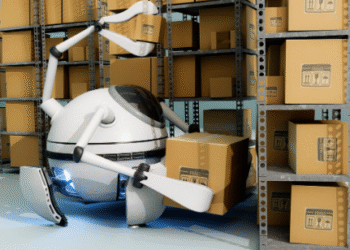In recent years, manufacturing has rapidly evolved, driven by technological advances and changing market demands. Modern manufacturers require specialized digital solutions to improve productivity, ensure quality, and remain competitive. This is where a manufacturing software development company plays a crucial role. Such companies create tailored software that addresses complex industry challenges.
Understanding Manufacturing Software Development
Manufacturing software development focuses on designing, building, and maintaining software systems tailored to the unique requirements of manufacturing processes. These solutions help companies manage everything from production scheduling and inventory control to equipment monitoring and quality assurance.
Unlike generic software, manufacturing applications demand deep integration with hardware, real-time data processing, and adherence to strict regulatory standards. This makes partnering with a knowledgeable manufacturing software development company vital for success.
Key Technologies Used in Manufacturing Software
Modern manufacturing software incorporates several advanced technologies that improve operational efficiency and decision-making.
1. Internet of Things (IoT)
IoT devices collect real-time data from machines, sensors, and products throughout the manufacturing floor. This data enables predictive maintenance, reducing downtime by anticipating equipment failures before they occur.
Fact: According to a report by McKinsey, IoT adoption in manufacturing could generate up to $3.7 trillion in value annually.
2. Cloud Computing
Cloud platforms allow manufacturers to store vast amounts of data securely and access software applications from any location. Cloud-based systems support collaboration between multiple sites and enable real-time monitoring.
3. Artificial Intelligence (AI) and Machine Learning
AI algorithms analyze manufacturing data to optimize production schedules, improve quality control, and detect defects automatically. Machine learning models adapt to changing conditions, enhancing the accuracy of predictions over time.
4. Robotics and Automation Integration
Software development companies design solutions that coordinate with robots and automated systems to increase speed and precision. Integration ensures seamless communication between software controls and hardware components.
What to Expect from a Manufacturing Software Development Company
1. Industry-Specific Expertise
A competent manufacturing software development company understands industry-specific workflows, regulatory requirements, and common challenges. They use this knowledge to design solutions that fit the manufacturing environment precisely.
For example, software designed for automotive manufacturing differs significantly from software for food processing plants due to different compliance standards and process needs.
2. Custom Software Solutions
Off-the-shelf software often cannot meet complex manufacturing demands. Expect your development partner to deliver custom-built solutions tailored to your unique production methods, machinery, and reporting needs.
3. Integration with Existing Systems
Manufacturing environments typically use various systems, including Enterprise Resource Planning (ERP), Manufacturing Execution Systems (MES), and Supply Chain Management (SCM). Your software development company should ensure seamless integration with these legacy systems to avoid data silos.
4. Scalability and Flexibility
Manufacturing processes evolve as companies grow or adopt new technologies. A modern software solution must scale accordingly and allow for flexibility in adding new modules or functionalities without major disruptions.
Development Process and Best Practices
1. Agile Methodology
Most advanced manufacturing software companies follow Agile development. This iterative approach allows for continuous feedback and quick adaptation to changing requirements.
2. Emphasis on Security
Manufacturing data often includes sensitive product designs and operational details. A reputable software company prioritizes security measures such as encryption, access control, and regular audits to protect intellectual property.
3. Testing and Quality Assurance
Manufacturing software must operate with near-zero downtime. Rigorous testing, including performance testing under real-world conditions, ensures that software is reliable and meets quality standards.
4. Ongoing Support and Maintenance
Manufacturing operations run 24/7, and software downtime can cause significant losses. Expect your partner to offer continuous support, quick bug fixes, and periodic updates to maintain optimal performance.
Real-World Examples of Manufacturing Software Applications
1. Predictive Maintenance at Siemens
Siemens developed a predictive maintenance solution that uses IoT sensors and AI to monitor turbine conditions. This system predicts failures weeks in advance, allowing timely maintenance that reduces unexpected downtime.
2. Supply Chain Optimization at Toyota
Toyota employs custom software that integrates production schedules with supplier logistics. This integration helps reduce inventory costs while ensuring timely part deliveries.
Benefits of Working with a Specialized Manufacturing Software Development Company
- Improved Operational Efficiency: Automation of repetitive tasks and real-time monitoring boost productivity.
- Better Decision-Making: Data-driven insights allow managers to optimize processes and reduce waste.
- Cost Savings: Predictive maintenance and optimized supply chains reduce operational expenses.
- Enhanced Compliance: Software designed with regulatory standards in mind simplifies audits and certifications.
- Competitive Advantage: Adoption of cutting-edge technologies keeps manufacturers ahead in innovation.
Industry Statistics Highlighting the Importance of Manufacturing Software
- According to Deloitte, 56% of manufacturing companies have increased investment in digital technologies since 2020.
- The global manufacturing software market is expected to grow at a compound annual growth rate (CAGR) of 7.4% from 2023 to 2030 (Grand View Research).
- Gartner predicts that by 2025, 50% of all manufacturing enterprises will adopt AI-driven applications.
Choosing the Right Manufacturing Software Development Company
When selecting a partner, consider the following criteria:
- Proven Industry Experience: Look for companies with successful projects in manufacturing sectors similar to yours.
- Technical Expertise: Ensure they have skills in relevant technologies like IoT, AI, and cloud computing.
- Communication and Collaboration: Effective communication ensures your needs are understood and met throughout development.
- Post-Deployment Support: Reliable maintenance and upgrade services are essential for long-term success.
- Customer References and Reviews: Feedback from previous clients indicates the company’s reliability and quality of service.
Challenges in Manufacturing Software Development
Manufacturing software projects can face challenges such as:
- Complex Integration Needs: Legacy systems can be difficult to connect.
- Real-Time Processing Demands: Systems must handle large volumes of data quickly.
- Regulatory Compliance: Software must meet industry-specific regulations.
- Change Management: Training staff and adapting workflows require careful planning.
Conclusion
A modern manufacturing software development company delivers custom, scalable, and secure software solutions designed to meet the unique demands of manufacturing environments. Their expertise in integrating emerging technologies such as IoT, AI, and cloud computing is essential for manufacturers aiming to improve efficiency and competitiveness.
By choosing the right software development partner, manufacturers can leverage data-driven insights, automate critical processes, and maintain compliance with industry standards. These advantages are crucial in today’s fast-paced, technology-driven market.
Manufacturing companies investing in specialized software development are better positioned to adapt to future challenges and opportunities in the digital age.






